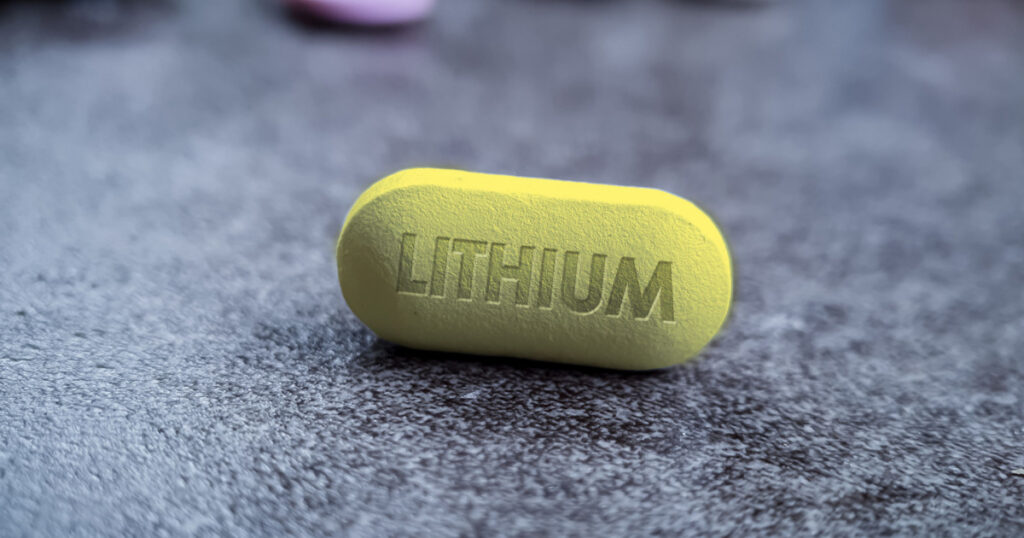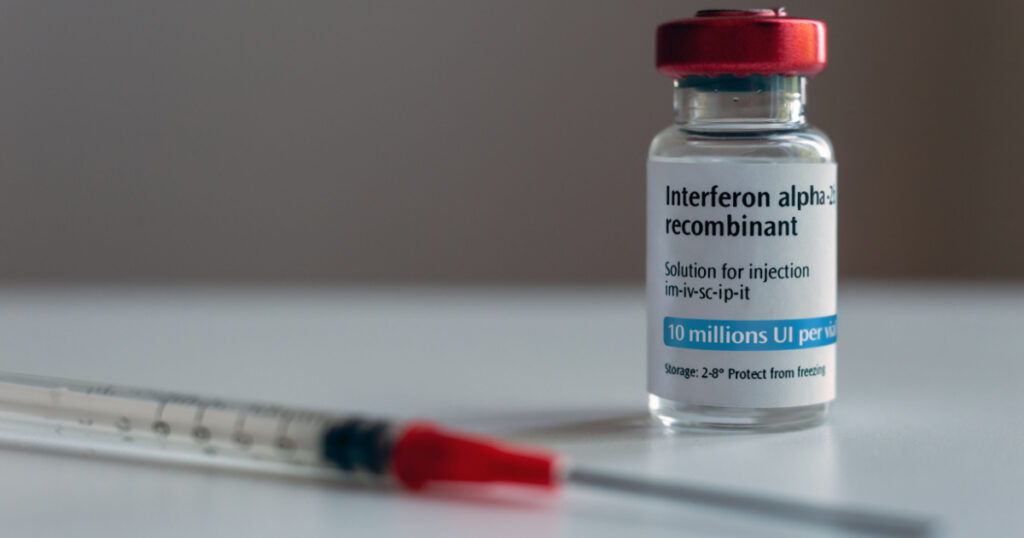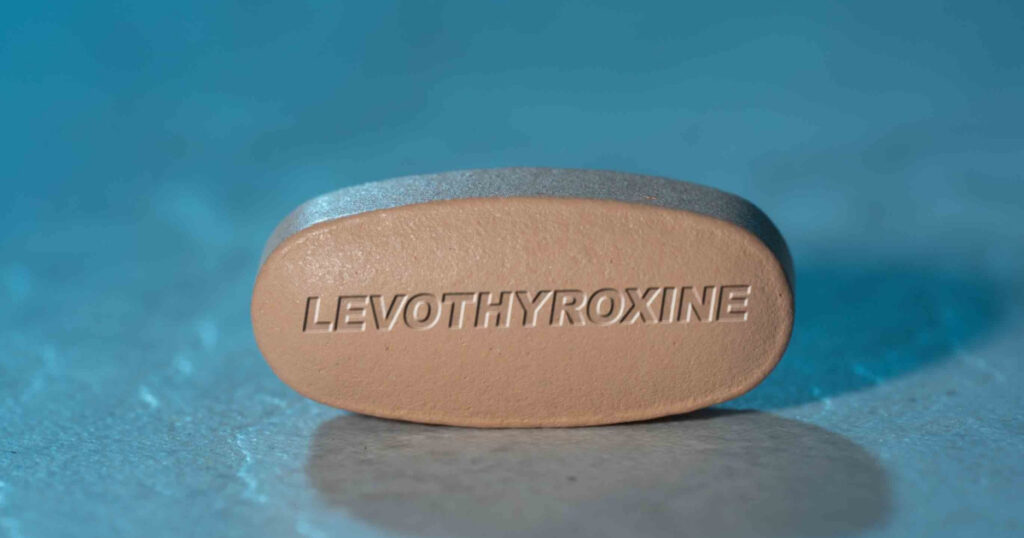Hypothyroidism is a condition in which the thyroid gland fails to produce enough of the hormones that regulate metabolism. It is one of the most common endocrine disorders, affecting approximately 10 million people in the United States. It occurs more often in women than men and often develops around middle age.
What Is Hypothyroidism?
Hypothyroidism is a condition that occurs when the thyroid gland doesn’t produce enough thyroid hormone. This can happen if your body doesn’t make it if your immune system attacks and damages your thyroid gland, or if you take certain medications. (1)
There are two kinds of thyroid hormone: T4, which is inactive, and T3, which is active. The body converts the inactive form into the active form to control metabolism. The thyroid gland is a butterfly-shaped organ that sits just below the Adam’s apple in your neck. It produces hormones that control metabolism, the rate at which your body uses energy. The thyroid also controls how sensitive your body is to other hormones, such as cortisol and adrenaline. If you have hypothyroidism, your body doesn’t make enough thyroid hormone. This can cause a wide range of symptoms, including weight gain, fatigue, muscle or joint pain, and depression. (2, 3)
8 Medications That Can Cause Hypothyroidism
There are several reasons why you could develop hypothyroidism. One of these reasons may be medications that disrupt your endocrine system. Here are eight common medications that can contribute to hypothyroidism:
1. Amiodarone (Cordarone)

Amiodarone is a medication used to treat irregular heart rhythms, such as atrial fibrillation and ventricular tachycardia. It can also be used to prevent the recurrence of these irregular heartbeats in patients who have undergone open-heart surgery. However, amiodarone can cause hypothyroidism in some people who take it, this is because the medication is 40% iodine. Excessive iodine can cause the thyroid to shrink and lead to hypothyroidism.
2. Lithium (Eskalith)

Lithium is used to treat bipolar disorder, a mental illness that causes extreme shifts in mood and energy levels. Lithium can also be used to prevent recurrent mania or depression in people with bipolar disorder. However, long-term use of lithium has been linked to hypothyroidism in some cases. In fact, some studies have found that up to 50 percent of patients taking this medication develop thyroid problems within six years of starting treatment.
3. Iodine-containing medications, like potassium iodide (SSKI) or potassium iodate (SSKI)

Iodine-containing medications, like potassium iodide (SSKI) or potassium iodate (SSKI), are used to treat thyroid conditions such as hyperthyroidism. They can also be used to prevent radiation-induced thyroid damage in people exposed to high radiation levels. However, these medications have been linked with hypothyroidism in some people.
4. Methimazole (Tapazole) or propylthiouracil (PTU) for hyperthyroidism or Graves’ disease

Methimazole (Tapazole) or propylthiouracil (PTU) are medications that are used to treat hyperthyroidism, also known as Graves’ disease. This condition causes an overactive thyroid gland and can result in symptoms such as tremors, sweating, weight loss, and palpitations. While these drugs effectively reduce the symptoms of Graves’ disease, they can also cause hypothyroidism.
5. Interferon-alpha for hepatitis C treatment (Actimmune) or hepatitis B treatment (Rebetron)

Interferon-alpha is a medication that’s used to treat hepatitis C and hepatitis B. It works by stopping the growth of viruses in your body, although it can also cause side effects such as joint pain, flu-like symptoms, and depression. Some people who take interferon-alpha for hepatitis C or hepatitis B may develop hypothyroidism as well.
6. Levothyroxine sodium tablets used to treat hypothyroidism and Hashimoto’s thyroiditis

Levothyroxine is a synthetic form of thyroid hormone that’s used to treat hypothyroidism and Hashimoto’s thyroiditis. It can cause side effects such as joint pain, nausea, vomiting, and diarrhea. Some people who take levothyroxine sodium tablets may develop hypothyroidism as well.
7. Metformin for type 2 diabetes

Metformin is used to treat type 2 diabetes. It can cause side effects such as joint pain, nausea, vomiting, and diarrhea. Some people who take metformin may develop hypothyroidism as well.
8. Prilosec for heartburn and other stomach problems

Prilosec is used to treat heartburn, acid reflux, and other stomach problems. It can cause side effects such as joint pain, nausea, vomiting, and diarrhea. Some people who take Prilosec may develop hypothyroidism as well.
The Bottom Line
While all of these medications have a purpose and are sometimes necessary, ensure you discuss all possibilities and options with your doctor. Know the risks and symptoms and monitor your health closely. If you notice something that changes in your health after beginning medication, be sure to speak to your doctor about it. Always speak up for yourself, and if you don’t feel like you are getting the care, don’t be afraid to change doctors or seek out another opinion.
Keep Reading: 10 Signs You’re Living With Clogged Arteries
Sources
- “11 Medications That Can Cause Drug-Induced Hypothyroidism.” Rupa Health. Dr. Jaime Cloyd ND
- “DRUGS THAT SUPPRESS TSH OR CAUSE CENTRAL HYPOTHYROIDISM.” NCBI. Bryan R. Haugen, MD. December 1.
- “Drugs and Other Substances Interfering with Thyroid Function.” Springer. Lucia Montanelli, Salvatore Benvenga, Laszlo Hegedüs, Paolo Vitti, Francesco Latrofa and Leonidas H. Duntas. May 31, 2018.
- “8 Medications That Can Cause Hypothyroidism” GoodRx. April 29, 2020.
Disclaimer: This information is not intended to be a substitute for professional medical advice, diagnosis or treatment and is for information only. Always seek the advice of your physician or another qualified health provider with any questions about your medical condition and/or current medication. Do not disregard professional medical advice or delay seeking advice or treatment because of something you have read here.

